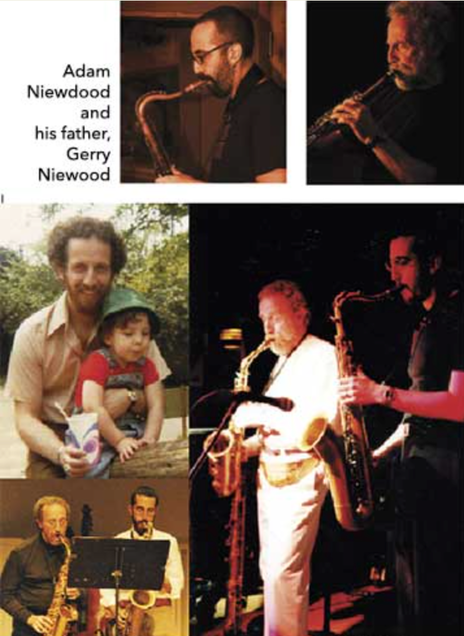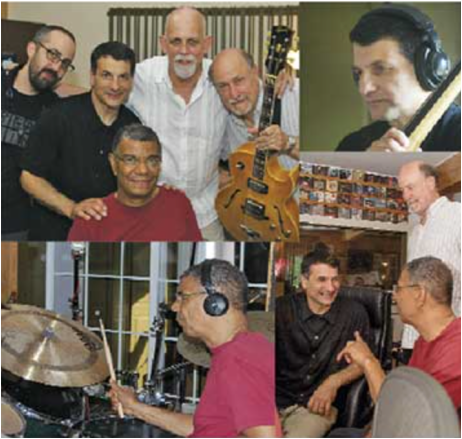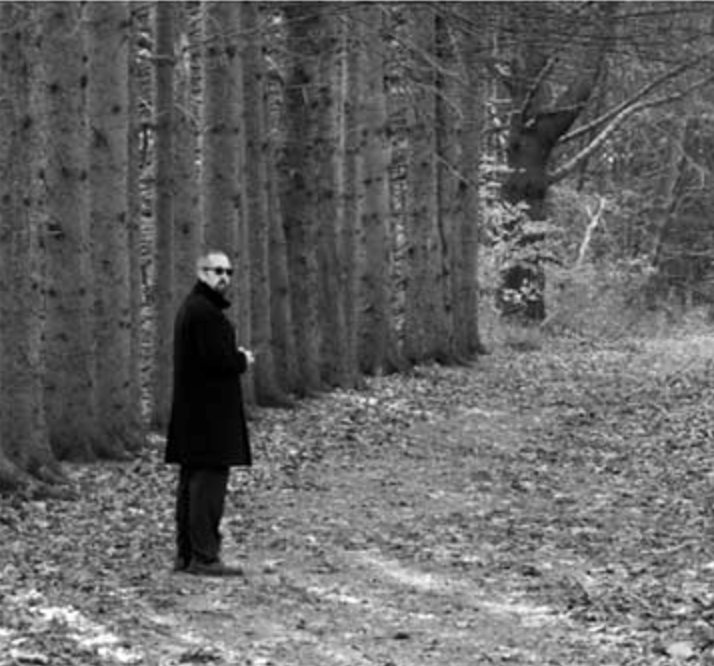Adam Niewood Plays Gerry Niewood:
HOMAGE
A Jazz Album by Adam Niewood
Available on iTunes
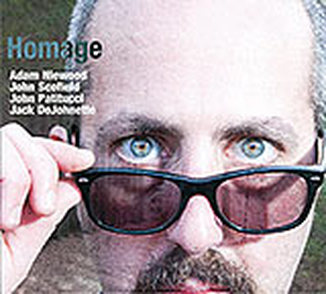
"Just listened to Homage: Niewood Plays Niewood. It moved me deeply! I did not budge until the end. You have done your Dad proud, Adam. He was a great man. You are also very special. Pain sometime brings emotions not generated by joy. Hope you are well and healing. You sure sound complete, sure and in charge. An honor to know you."--Phil Woods
Personnel
-Recorded August 15 and 16, 2010 by Scott Petito at NRS -- -Recording Studio in Woodstock NY scottpetitoproductions.com -Mixed and Mastered by Paul Wickliffe at Skyline Pro in Warren NJ www.skylinepro.com -Produced by Bill Goodwin, Adam Niewood, and Gurly Niewood -All compositions composed by Gerry Niewood except: “Final Departure ” and “What You Meant to Me” by Adam Niewood (Adam Niewood Music) -Brandon Martelle Jones (Martelle Jones Fine Art and Design) - Cover Art Photography -Tracy Allan - Studio Photography -Vintage photography courtesy of the Niewood Family -Danny N. Schweers - Album Design -Vectordisc Records: www.vectordisc.com Copyright 2015 Vectordisc Records 037 Jack DeJohnette plays Sabian cymbals and Sonor drums |
Track List
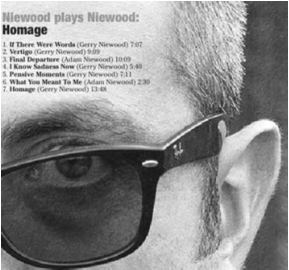
1. If There Were Words 7:07
2. Vertigo 9:09
3. Final Departure 10:09
4. I Know Sadness Now 5:40
5. Pensive Moments 7:11
6. What You Meant To Me 2:30
7. Homage 13:48
2. Vertigo 9:09
3. Final Departure 10:09
4. I Know Sadness Now 5:40
5. Pensive Moments 7:11
6. What You Meant To Me 2:30
7. Homage 13:48
Liner Notes by Adam Niewood
While touring Spain with Bill Goodwin, in the summer of 2009, I received an inspiring email message from back home: a treasure-trove of original compositions had been found (79 in total). Hand-written charts, mostly pencil on manuscript paper ... complete with crossed-out sections ... the road-map to music my father had left behind. This is what Dad had been doing after dinner, when he disappeared upstairs to his attic practice space. Excited about the idea of getting to read and play-through all this music my dad wrote, that I didn’t know existed ... I went down to dinner ... and mentioned this cool find to Bill Goodwin.
Bill got extremely excited and inspired right along with me — and said, almost like he was predicting the future, “Adam, this is your father’s legacy. You have to record this music for him so that the world can hear his message.” In the months that passed after my return from that tour, I played through all the various charts, and tried to pick out five of Dad’s compositions that complemented one another as a unified body of work. As the producer, Bill, requested I wrote two compositions to be played along with my father’s. The following is my description, or a little personal back-story, about each of the compositions on this recording you are listening to.
Bill got extremely excited and inspired right along with me — and said, almost like he was predicting the future, “Adam, this is your father’s legacy. You have to record this music for him so that the world can hear his message.” In the months that passed after my return from that tour, I played through all the various charts, and tried to pick out five of Dad’s compositions that complemented one another as a unified body of work. As the producer, Bill, requested I wrote two compositions to be played along with my father’s. The following is my description, or a little personal back-story, about each of the compositions on this recording you are listening to.
|
“If There Were Words” is as indicative of my father’s whole overall vibe as any song I could find in his body of work. The melody, understated and yet complex in its inherent simplicity, almost as if there were lyrics, but there are none written (...yet). The chord progression, in complement to the melody, is familiar sounding to me. Its twists and turns, spanning the minor moods, with a structure sounding very much like a favorite standard, a surprise twist going to major at the conclusion of the improvisations. Jack DeJohnette called me on the phone a couple days after we recorded, and after a bit of small talk about the weather, he made a point of telling me that this song in particular, out of everything we recorded, should in his opinion, “be the first track on the record.” How could I ignore the opinion of Jack DeJohnette?
“Vertigo” (dated on the original chart as being composed July 9, 1998) reminds me of a Miles Davis era Wayne Shorter composition. It has a short-form 16-bar framework using specifically Maj 7th #11 and #5 Dominant 7th #9 chords, moving in close relation to one another. The title, if I had to venture a guess, is a tongue in cheek nod to my father’s fear of heights, and an experience he described having sometimes with high stages in combination with his stage-spacing to the edge while performing. “Final Departure” is a composition I wrote specifically to be performed by myself with Scofield, Patitucci, and DeJohnette in the studio, as a complement in varying contrast to “my pop’s tunes.” I would say that I purposely composed the architecture of this song in a through-composed mindset, with sections transitioning forward from one to the next, nothing meant to return back to the beginning theme, no recapitulation. After my father passed, I had to retrace his final moves/moments, and what he did on his final journey to the airport. As I drove to the airport, only a few short hours after the crash, as I looked for his car in the endless sea of lonely automobiles in the long-term parking, as I mulled over the sequence of what his last activities were, this song’s various themes kind of just came to me ... a soundtrack to my father’s “Final Departure” onward to the next realm. |
|
“I Know Sadness Now” — written May 8, 1998 — is in my opinion a masterpiece of my father’s writing, a marriage of melody with harmony and structure. Given the timing, I would have to guess that it was written around the time my Grandmother Mary (Dad’s mother-in-law) and also Dad’s friend Ron Davis both passed away. I know these two events deeply moved him.
“Pensive Moments” written Sept 24, 1987, is another one of Dad’s compositions that captures his ability to write something original and new, yet sounds so familiar, akin to a classic American songbook standard. This track features the virtuosic improvising of John Patitucci along with the rest of the band. “What You Meant to Me” was composed by me as the introduction to the title track of the recording, “Homage,” a minor-blues written by my father Gerry, in homage to the great John Coltrane. I imagined to myself that if the John Coltrane quartet were to perform Dad’s song, they would have done a dramatic rubato introduction before Jimmy Garrison would have set the tempo with the ostinato bass figure. |
“Homage” was a track on Dad’s first record, “The Gerry Niewood Album”, released on the Sagoma label in 1975, and later re-released as the A&M pressing of the same recording, entitled “Slow Hot Wind.”
To write an arrangement of Dad’s song, I started by playing the original recording. It had such a powerful and full-sounding ensemble, I didn’t want anything to be missing from his full sonic landscape on my interpretation. I transcribed the piano voicing played by Bill Dobbins, the bass figure played by Gene Perla, and the three-part harmony played by the horns (my father Gerry, Lew Soloff and Bill Reichenbach). I used overdubbing of the soprano and tenor saxophones, bass clarinet, and the Akai EWI to create the full-sounding texture present on my father’s recording. My pop wrote this tune in homage to the great John Coltrane. I chose to make this composition the last track on this album to pay tribute in homage to the biggest and strongest influence in my life, my father, Gerry Niewood. I hope you enjoy this collection of original music. And thank you! — Adam Niewood |
Reviews & Comments
"Man the record sounds so good ... what a band! ...and YOU ... your playing, your tunes, the way you conceived this project ... and of course Gerry's wonderful vehicles. Thank you so much for giving me this chance to play. You're killing, Adam. --Much love, John Scofield
